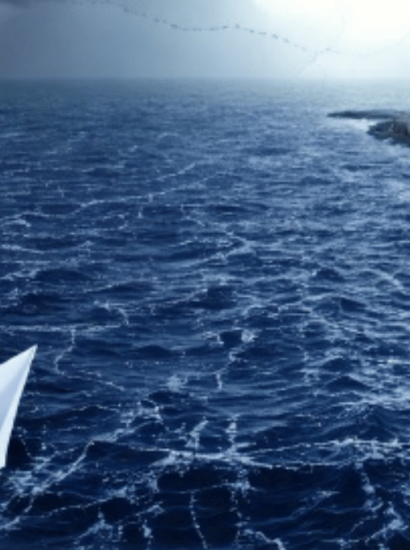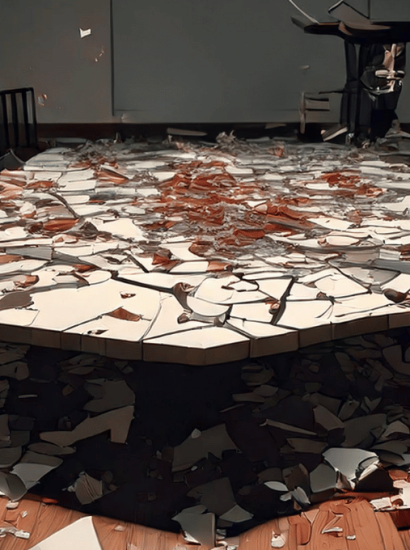This post is also available in: ΕΛΛΗΝΙΚΑ (GREEK) TÜRKÇE (TURKISH)
On Tuesday, while we in Cyprus were walking in the backwash of [the events that had taken place in] Chlorakas at the risk of stepping on the serpent’s egg, I came across the news in the press, both international and domestic, that in Chile, the junta murderers of the troubadour of peace, Victor Jara, were irrevocably sentenced 50 years later.
Victor Jara, the man who wrote the great “Venceremos” (“We will win”), that became a hymn on the lips of all oppressed people around the world, was perhaps the most famous victim of the Pinochet junta that overthrew Allende on September 11, 1973.
His fame went beyond the borders of Chile and great artists from all over the world sang about him. Jara was among the 5,000 leftists arrested and imprisoned in the Santiago Stadium. There, he was subjected to horrific torture. His torturers, after breaking his fingers, asked him to play the guitar and sing. Jara sang “Venceremos” to them. They executed him with a bullet to the head. It was September 16, 1973. For the murder of Jara, the Chilean Supreme Court on Monday handed down prison sentences to seven retired soldiers, aged between 73 and 85. They will serve sentences ranging from 8 to 25 years in prison. Now Chilean democrats can finally cry “Venceremos”… I too remembered [what had taken place] in Larnaca on July 15, 1974, and recalled my own dead, about whom I have been writing reports and articles and poems for half a century now, and “I took my mother’s blessing and went to war naked. I asked but they wouldn’t give me a gun and I brought back four dead men covered with an olive branch. And I washed my hands there where the sea became red with shame, terra umbra and nightmares”…
On Thursday, I saw a post by my friend, Nikitas Christodoulakis, who now lives abroad, in which he posed a heart-wrenching question: “49 years after the murder of Doros Loizou, I would like to ask a simple question. Because I was 13 years old at the time, I am now 62, I will write down three names which I have retained very well in my memory for 49 years now and ask what these three names have to do with the attempt on the life of Vassos Lyssarides and the murder of Doros Loizou, and he quoted the three well-known names who bore “crooked hats”, and whom people living in Nicosia at that time know very well. The day before, on Wednesday, my colleague Costas Venizelos had an excellent article in “Φ” [Phileleftheros], in which, among other things, he noted: “The smoke from the Turkish bombardments created a suffocating cloud that spread over Nicosia. Refugees were seeking shelter, which they believed would be temporary. Families searched for their missing. It was in this climate of betrayal, destruction and occupation that Doros Loizou was murdered on August 30, 1974, by EOKA B. There were three perpetrators. Who are both known and ‘unknown’. ‘Look at this white Mazda, Doctor. No registration numbers. It’s one of those EOKA B is using,’ Doros told EDEK [Movement for Social Democracy] leader Vassos Lyssarides, and he was right. The Kalashnikovs turned on them and they started emptying their bullets into the car. Lyssarides and Doros’ wife, Barbara Loizou, were wounded, Doros was killed. They murdered him.” … The killers are still at large, the case is not closed but it is… closed, Costas Venizelos underlines.
In Larnaca, the killers are also roaming free. Four people were killed there: George Hadjistefanis, Achilleas Kourtellis, George Charalambous, and Andreas Theodosiou. They were murdered on July 15, 1974 in the city centre by well-known Larnaca members of EOKA B. Everyone knows them, by name. The case was not closed, but it is… closed! I know this because, apart from the fact that it was by chance the bullets did not kill me, along with George Hadjistefani who was in front of me, George Charalambous who was next to me and Andreas Theodosiou who was behind me, my adolescence, my revolution and my democracy died with them that day. As much as I had managed to understand, build and recite. My democracy that was murdered before my very eyes, and its crimson blood stained my face and clothes. And yet I also remember Alkinoos [Ioannidis] and shudder when he says: But when I watch the news run at night/I know that they have no news to tell me/I was in the fire, I was the fire/I saw the end with open eyes. I saw the face of war, the nation and race betrayed from within, by the most patriotic. They held my mother captive with a gun in her mouth/Their children decorate the Parliament today… [Translator’s note: Lyrics to a song by Alkinoos Ioannidis] And Doros Loizou, behind the bullet-riddled windshield of history warns: The wise ones will come to trip me up, because I’m chasing customers away from the shops… The fools will come, and the serious ones… The Easterners, the Westerners… The Protestants, the Catholics… The ones on my side, the enemies… The devils, the gods… Anyway, all of them, them and those who take life on a moment’s whim… [Translator’s note: Lines from a poem by Doros Loizou]
And as real justice fades away completely and the pettifoggers triumph on the road to Chlorakas, I will borrow the closing lines of Costas Venizelos (Phileleftheros. 30.08.2023): “The murderers, both those who pulled the trigger and those who gave the orders, have been put on record. Forty-nine years later, because fascism has not been defeated, it grows stronger. The descendants of EOKA B, wearing a parliamentary cloak (not for the first time), act undisturbed and grow stronger. Today they wear hoods, carry clubs and attack. Tomorrow?”…
Source: THE CRY BEHIND THE BULLET-RIDDLED WINDSHIELD OF HISTORY






